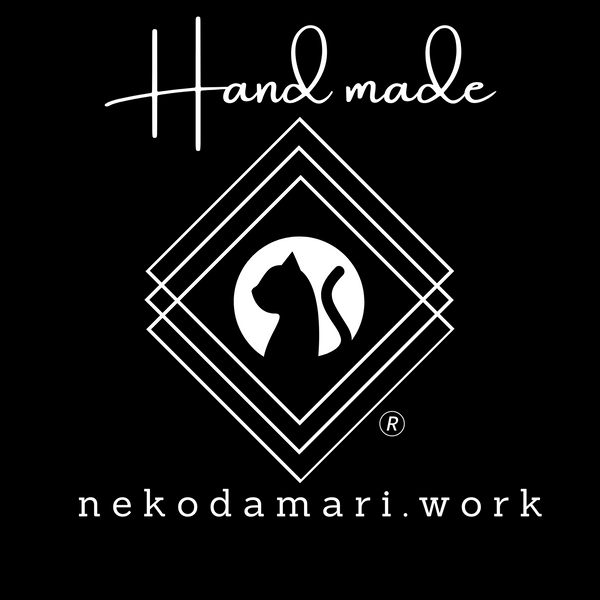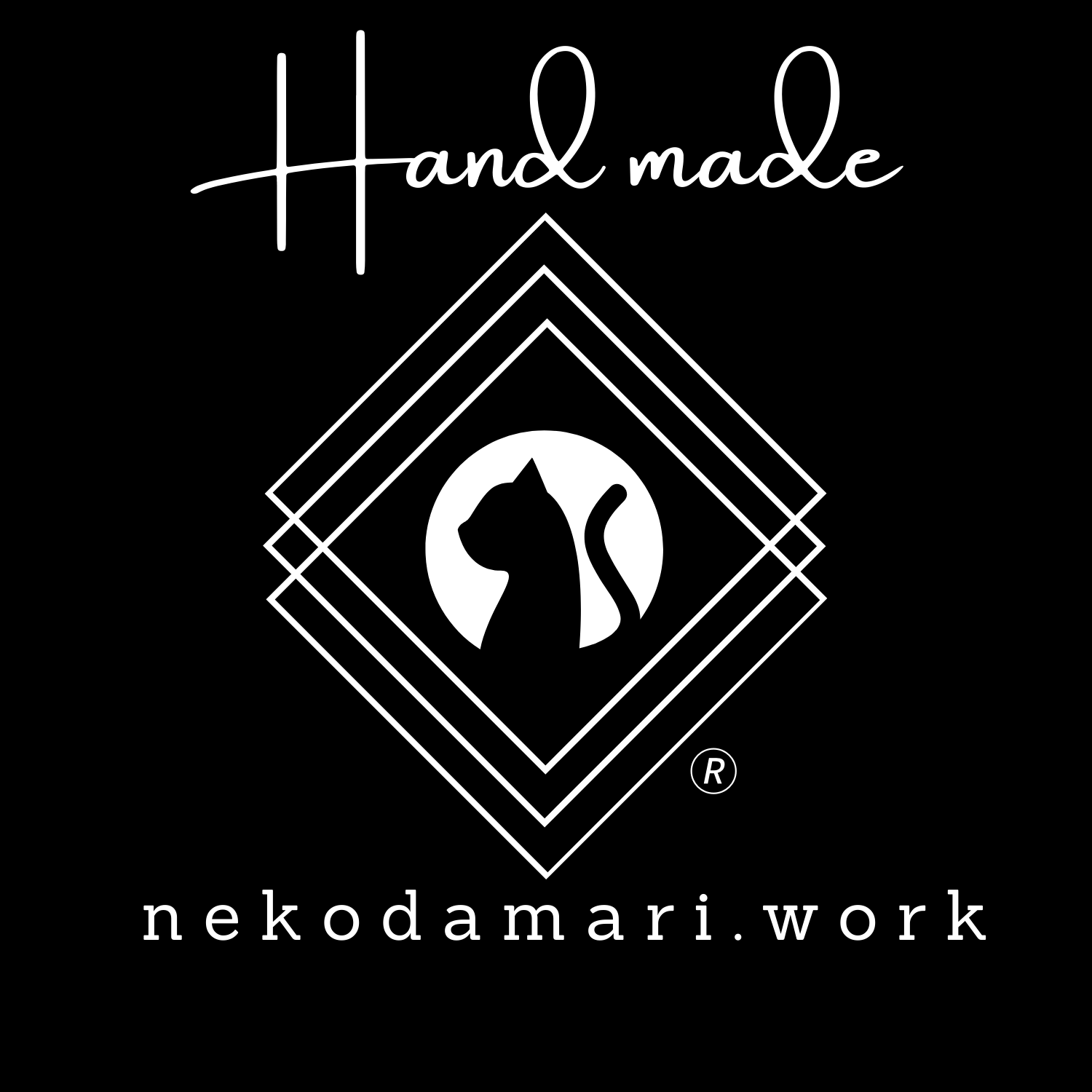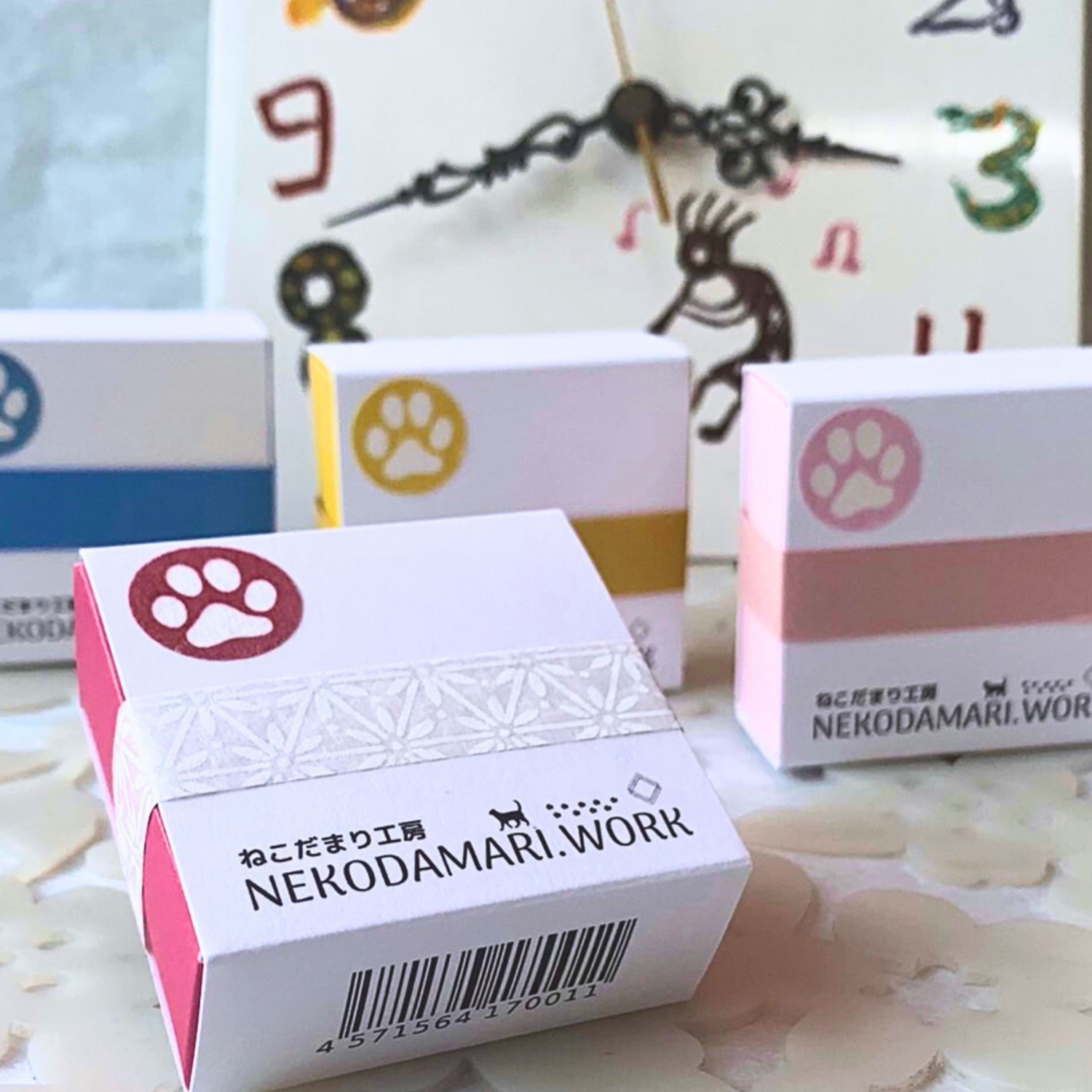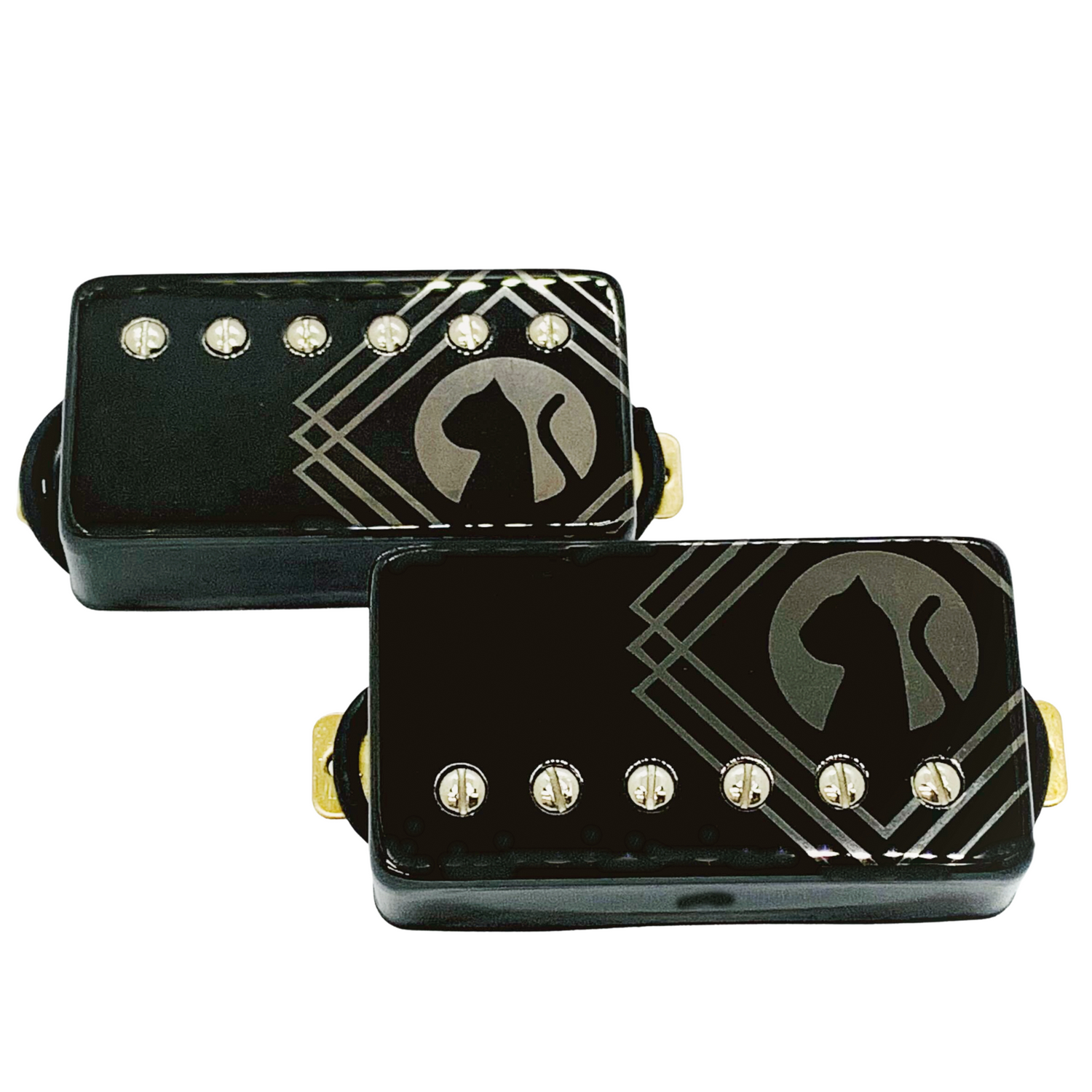FAQ
We will post frequently asked questions in Q&A format. If you have any other questions or concerns, please contact us using the inquiry form.
Beeswax Q&A
What is beeswax?
It is a mixture of beeswax, which is also the material used in beehives, and oil. There are mainly beeswax wax for woodworking that uses drying oil, and beeswax wax for cosmetics that uses non-drying oil. For more information, please see the column article.
What is different about Nekodamari Kobo's beeswax?
Compared to general beeswax, the biggest difference is that it is made from a cosmetic perspective, with a recipe derived from hand cream. Also, it is made with a simple formula and easy-to-use hardness and volume so that the performance and characteristics of the material can be fully utilized even in a cosmetic perspective. Please check the following items for the differences.
What are the differences between woodworking and cosmetic products?
For woodworking, oils that oxidize easily, known as "drying oils," are often used. This is because the oil changes as it oxidizes and forms a coating, making it suitable for use as a paint. On the other hand, from the perspective of cosmetics, stable oils that do not oxidize easily, known as "non-drying oils," are used to moisturize the skin and for the purpose of penetration and protection. Jojoba oil, which is mainly used by Nekodamari Kobo, is particularly stable among these non-drying oils, so it hardly oxidizes. It also has unique lubricating properties that make it used as a lubricant for artificial hearts, which leads to better string gliding when playing. For more information, please see the column article.
I've heard that beeswax has a bad smell and can spontaneously combust. Is it safe to use?
Beeswax wax for woodworking that uses "drying oil" has a unique smell and is highly likely to spontaneously combust. The principle of spontaneous combustion is that when flammable items such as cloth or paper are left in a high-temperature environment, the drying oil rapidly oxidizes and generates heat called oxidation reaction heat. This heat can lead to spontaneous combustion when adverse conditions such as midsummer days or when flammable items are gathered together. "Non-drying oil" is not easily oxidized, which causes oxidation reaction heat, so there is little risk of spontaneous combustion under normal use. Jojoba oil is particularly stable, but unless you intentionally apply a large amount and leave it in a dryer or leave it in a car under the hot sun, there is no risk of spontaneous combustion. In addition, it does not oxidize and harden like "drying oil", so it does not trap dirt.
What can it be used for?
It is mainly sold for use on musical instrument fingerboards. When used on fingerboards, it moisturizes and protects against dryness, forms a lubricating coating to prevent fret wear, and provides waterproof and water-repellent effects against sweat. It can also be used on strings to prevent rust, as a lubricant for fingers, or as grease for metal moving parts. It can also be used on woodworking and leather products to add shine and provide waterproof and water-repellent effects, so it can be used on many everyday items.
Please tell me what effect it has.
Its main effects are waterproofing, lubricity, and antiseptic properties. As you can see when you apply it, it repels water, preventing sweat from penetrating and making it less susceptible to environmental changes such as dryness and humidity. The lubricity comes from the properties of jojoba oil, and some people have even noticed that the gauge (thinness) of the strings changes due to how well they slide. The lubricating film also has antiseptic properties, and applying it to areas that are prone to rust, such as strings, or to dull areas, such as frets, can prevent deterioration.
Can it be used on maple fretboards? Is there anything it can't be used on?
It is effective not only on unpainted rosewood and ebony fingerboards, but also on painted maple fingerboards. It can also be used on oil-painted, urethane-painted, and lacquer-painted fingerboards. Unlike unpainted fingerboards, it does not have a moisturizing effect. (It forms a coating on top of the paint.) However, since it is a lubricating coating, it improves the sliding of your fingers when playing, and also prevents rust and wear on the frets. It can also be used on resin fingerboards, so it is recommended for those who want a smooth surface. As for things that we do not recommend, we think it is better to use a dedicated cleaner for normal glossy bodies. It is effective on solid oil-painted fingerboards as it adds gloss.
How long can I use it? What is the expiry date?
As a rough guideline for the expiration date, we recommend that you use it about one year after purchase. Because it uses highly stable oil, it can be used for several years, but we recommend that you use it for one year after purchase, assuming that it may vary depending on the storage environment and may deteriorate due to partial use. Please store it in a sealed, cool, dark place with good ventilation. To give an easy-to-understand example, it is best to store it in an environment that is comfortable for humans. If it starts to smell strange like old oil, it may be due to deterioration due to oxidation. In that case, we would appreciate it if you discard it as expired and use a new one.
Is it made in Japan? Is it handmade?
Each item is handmade in Japan. Please check out our YouTube videos and columns.
Pickup Q&A
What is a pickup?
This is the part that is attached under the strings of an electric guitar. It acts like a microphone, sending a signal to the amplifier to produce sound, and is the central part of the electric guitar. There are various specifications and types, but the ones Nekodamari Kobo produces are magnetic pickups, which are standard pickups with a single coil or humbucker structure.
What are the characteristics of Nekodamari Kobo's pickups?
The main features are that they are made using machines that have been used to manufacture Japanese guitar pickups for over 50 years, and that the sound is controlled by a potting process based on the beeswax used in our workshop. Normally, when manipulating the sound, one often makes ingenious efforts to wind the pickup, but these efforts can also lead to individual differences. By being able to control the sound during the potting process, individual differences in the product are less likely to occur, and a stable product can be produced. In addition to the ingenuity of the potting process, we aim to produce high-quality pickups by pursuing the quality of the winding method and other ingenuity of the pickup.
Is custom production possible?
For custom-made orders, please contact us using the inquiry form. We may not be able to produce your order depending on the specifications, but we will do our best to accommodate your request. Please check out our column articles for examples of our past productions.
What is the suggested price for an order?
It depends on the specifications, but as a rough guide, it would be good to aim for around 32,000 yen + tax per instrument. If special materials are used or specifications that require a lot of labor will cost more, but if it is a general pickup, there will not be a big difference.
Is it made in Japan? Is it handmade?
Each one is handmade in Japan. In terms of winding methods, we mainly use machine winding, which allows for mass production, but the details vary depending on the product. Please see the column article for details on winding methods.
Other Q&A
Can I order gifts etc?
If you have any information about whether the item is for a gift, etc., we will do our best to accommodate your request. Please use the comments section when placing your order, or contact us through the inquiry form. Please note that if no information is provided at the time of ordering, the item may be shipped as usual.
Can I try out the scent of the product?
We are very sorry. Unless you can check samples at a store that handles the product, there is no way for you to try it out. We can include scented sheets with your order, so if there is a scent you are interested in, please let us know in the comments section and we will include it with your order.



